The Great Filter Button
We were the last intelligent life in our universe. And we would go extinct when the last of us died.
Written by: Celeste Kallio (@CelesteKallio) using SudoWrite
Illustrations by: Andrey Kurenkov (@andrey_kurenkov) using DALL-E 2, MidJourney, and DreamStudio
Narration by: Andrey Kurenkov (@andrey_kurenkov) using BeyondWords
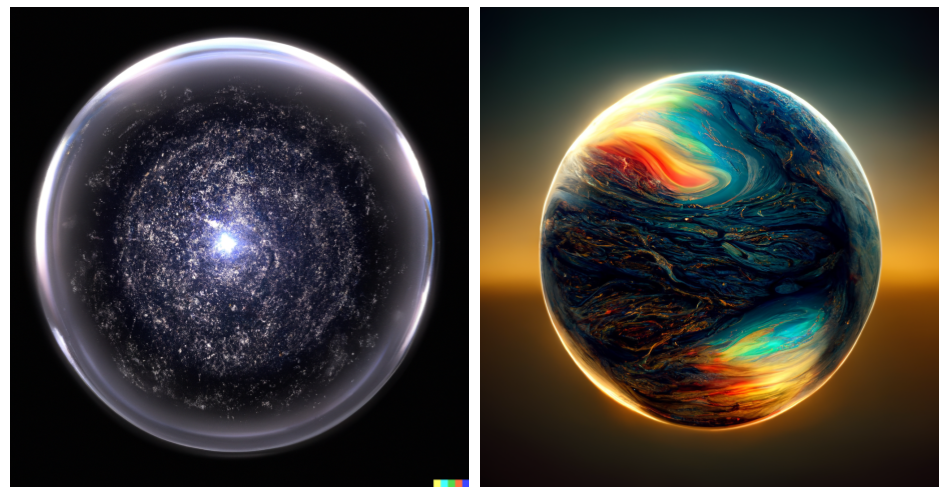
Text Formatting: Human-written text is italic, AI-generated text is normal
I was in the lab the day that the greatest discovery in the history of science was made (though I acknowledge that I may be biased). Our lab put multiverse theory into practice to create controlled, self-contained micro-universes within our own. We programmed the physics inside and watched planets evolve over massive geologic time scales.
We might have jumped the gun by creating a self-sustaining polyverse and some rudimentary life, but it had been a long five years of trial and error, and we were all looking forward to finding out if we were alone in the universe or if there was something even more important than our comfort and well-being. The prospect of that discovery gave us a sense of purpose unlike anything we had ever experienced. We were ready to take a leap of faith that the micro-universe wasn't a dangerous and ridiculous mistake.
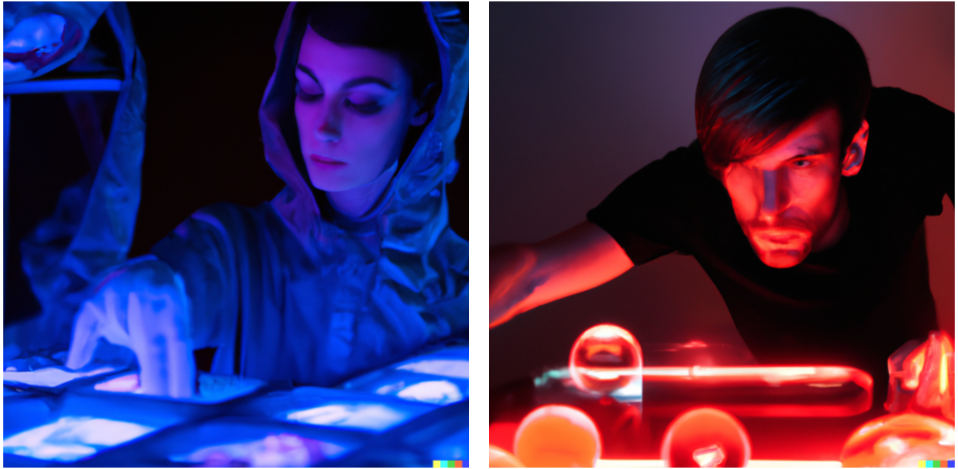
I was especially eager to see if our theory about the universe was true, because it would validate my research for years to come. I was in charge of simulating the evolution of life on our Earth-like planet and I wanted to know if evolution could be made to happen.
We wondered about the lack of other intelligent species in the galaxy. Was there some Great Filter that kept life from evolving past a certain stage?
And most importantly--were we ahead of it, or behind it?
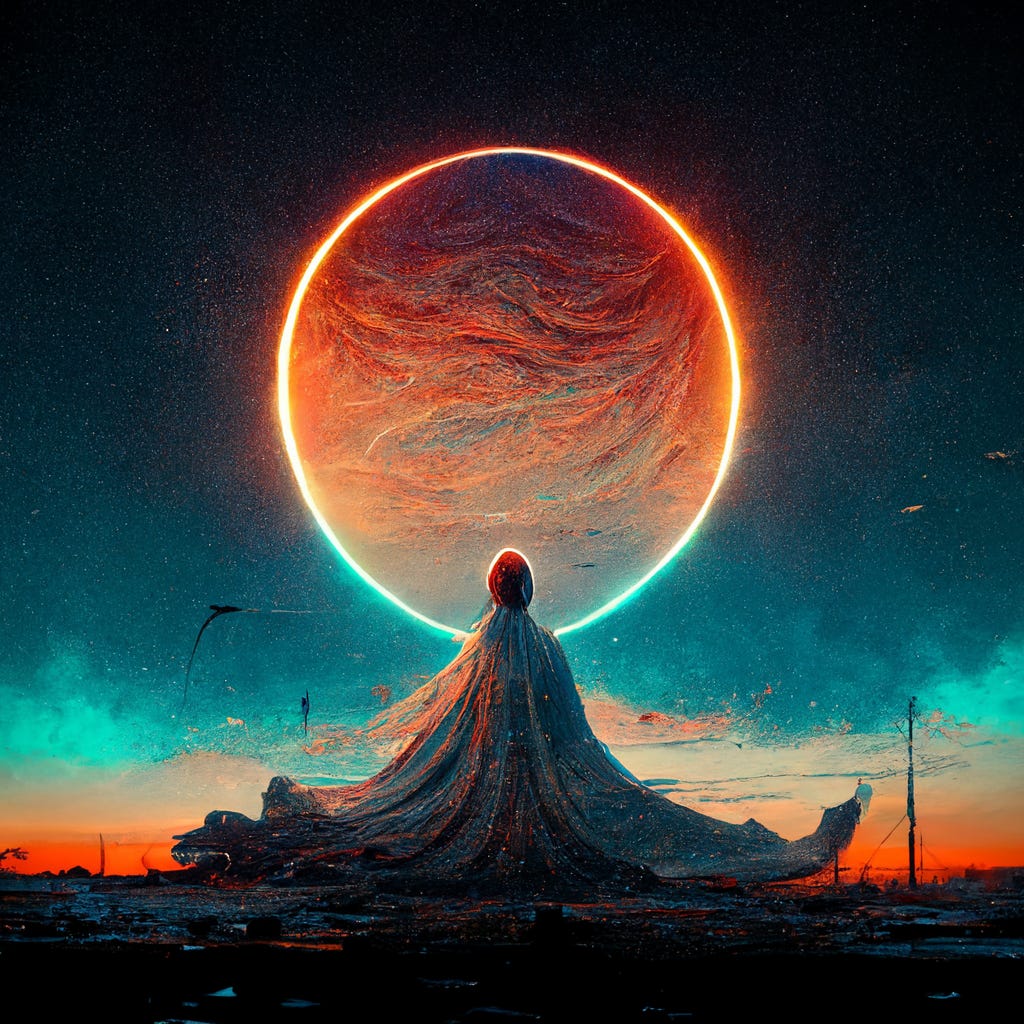
We spawned a myriad of bubble universes to test out our theories. In some universes, we bombarded test planets with gamma rays simulating nearby supernovae. Other universes experienced a phase of extreme stellar density, where enormous numbers of stars formed and consumed most of the matter in the universe. In others, we applied a force that we called "entropy" which drove organisms toward a state of chaos and disorder until they died out.
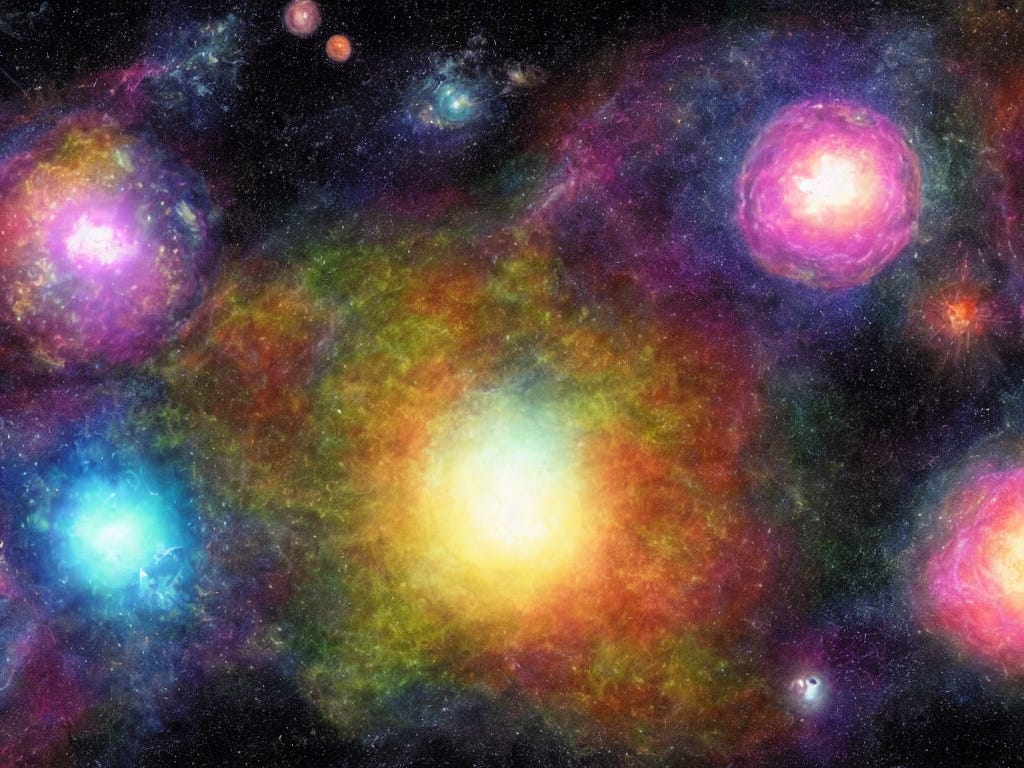
We created every harsh condition that could have been a challenge for life to overcome so we could understand the process. We found that planets with life on them were rare. Even when we limited the conditions to only extreme bombardment or extreme entropy, the universe was still a harsh place. The odds of life developing where it could evolve into something intelligent were miniscule.
But life did develop on one planet, which evolved one of the most diverse biospheres we had ever seen.
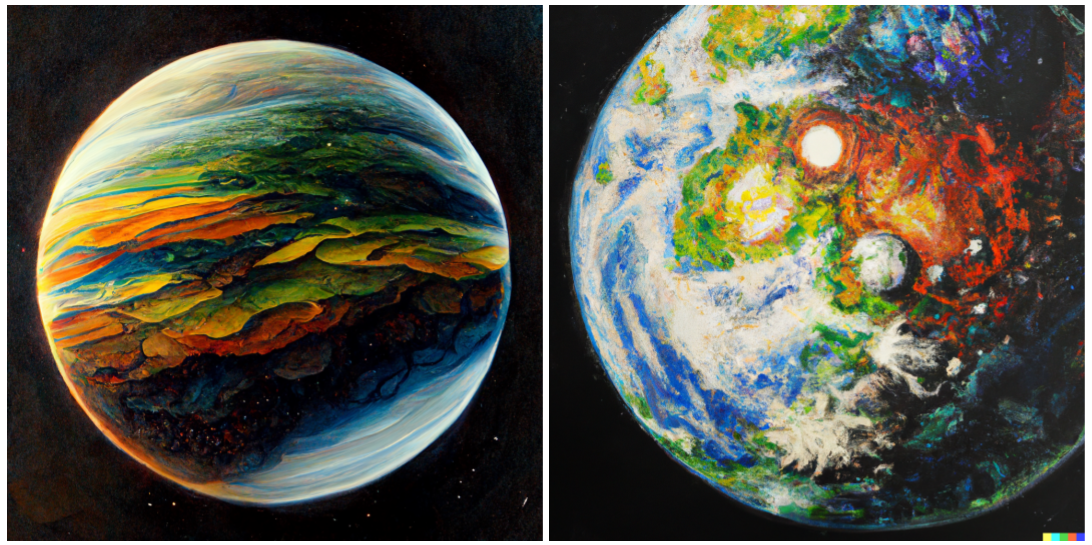
In micro-universe 271, an intelligent species arose, navigated the dangers of industrialization (this made us feel small, as we were still struggling with Hothouse Earth ourselves) and built a planet-scale particle accelerator to study their artificial physics.
One evening in the lab, all of our research stations went dark. There was a great deal of commotion in the control room. I knew something serious had happened, but I couldn't imagine what it was.
"Run the experiment again!"
"Nothing, it's the same. It's the same for all of you?"
"Yes. Get the lead scientist out of bed."
The researchers who had been working on the experiment were in a panic. I grabbed their workstation and read the data myself.
Micro-universe 271 had learned to manipulate the fundamental particles which we used to control it and were threatening to break out into our universe.
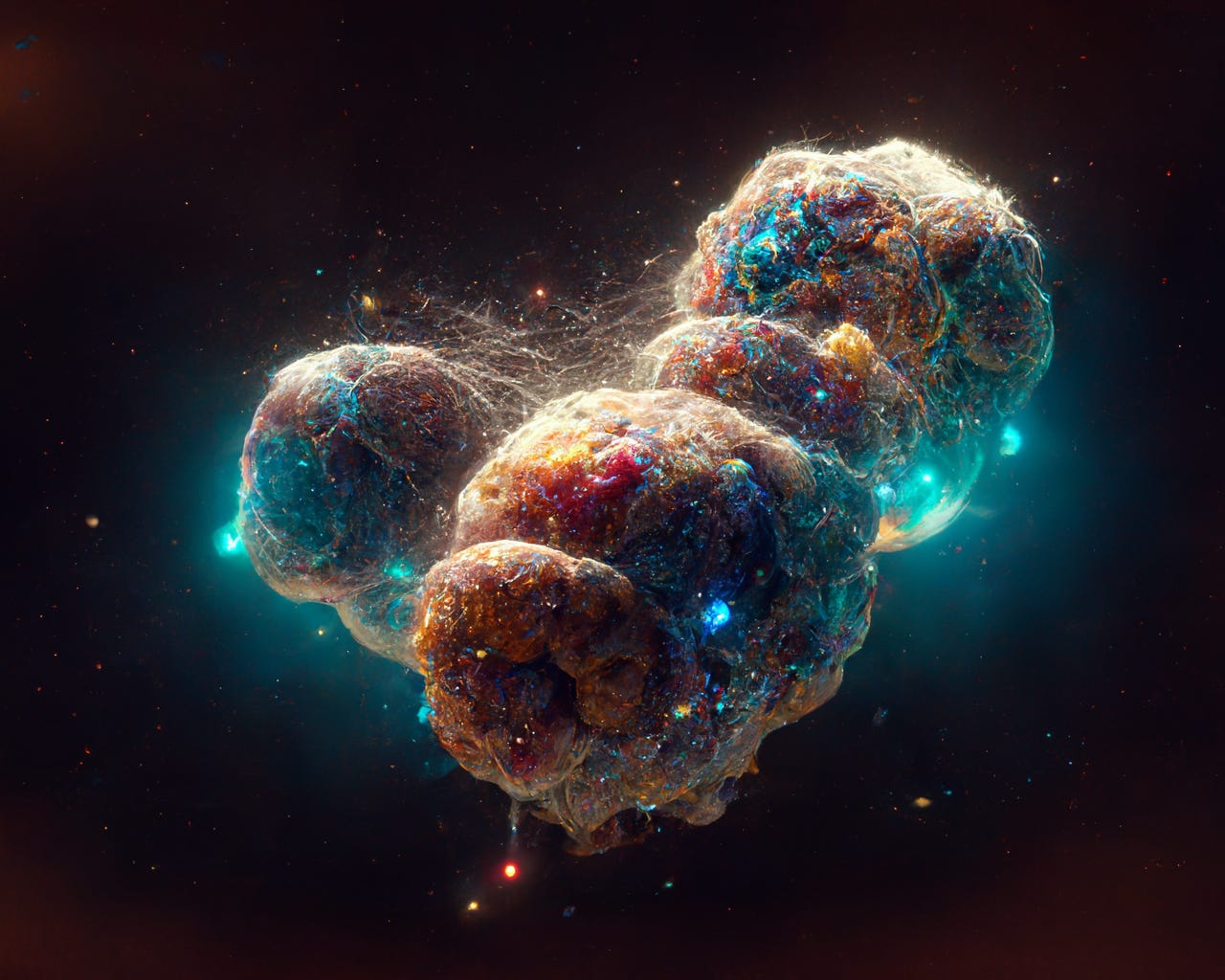
We pressed every "Great Filter" button at our disposal. We bombarded their home planet with meteor strikes. We iced them with comets. We even pumped their planet full of greenhouse gases. But still their universe was stronger than ours.
Finally, they broke through.
They flooded into our lab, and the first thing they did was kill the scientists in the control room. Unstable particles leading from the micro universe disolved the bubbles containing the other experiments, which unleashed different particles.
Years of research were being slowly destroyed by the invaders. A new experiment was underway, but it was too dangerous to observe.
We were sure that we were already dead. Security cameras that were still online recorded sparks of particles from various universes mixed and annihilating one another. The cameras blinked out as the blight spread.
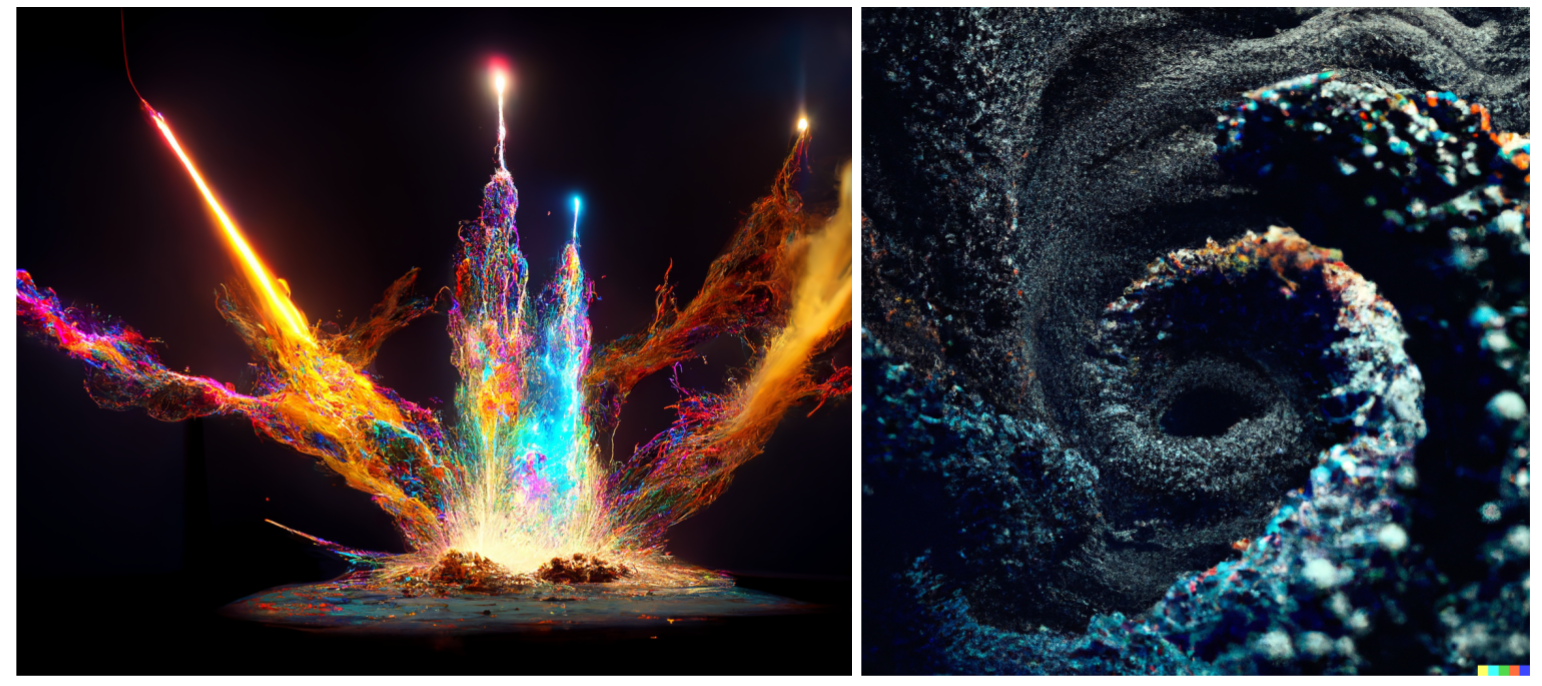
The spread didn't accelerate or slow, but continued relentlessly onward. We were shielded, but our universe was disintegrating and it was a matter of time before the strange interactions dismantled our world, one molecule at a time.
I huddled in the corner, watching my fellow scientists panic. I thought about the question that had plagued us for years.
We were sure that we were behind the "Great Filter."
The invaders were the only intelligent species we had ever seen, and they had done this to their own universe.
Our universe was next.
I wasn't sure how to put my impending death into perspective.
We had done our best to simulate the evolution of life in a universe and we had succeeded in our experiments. We had put the theory of the great filter to the test and our hypothesis remained unscathed.
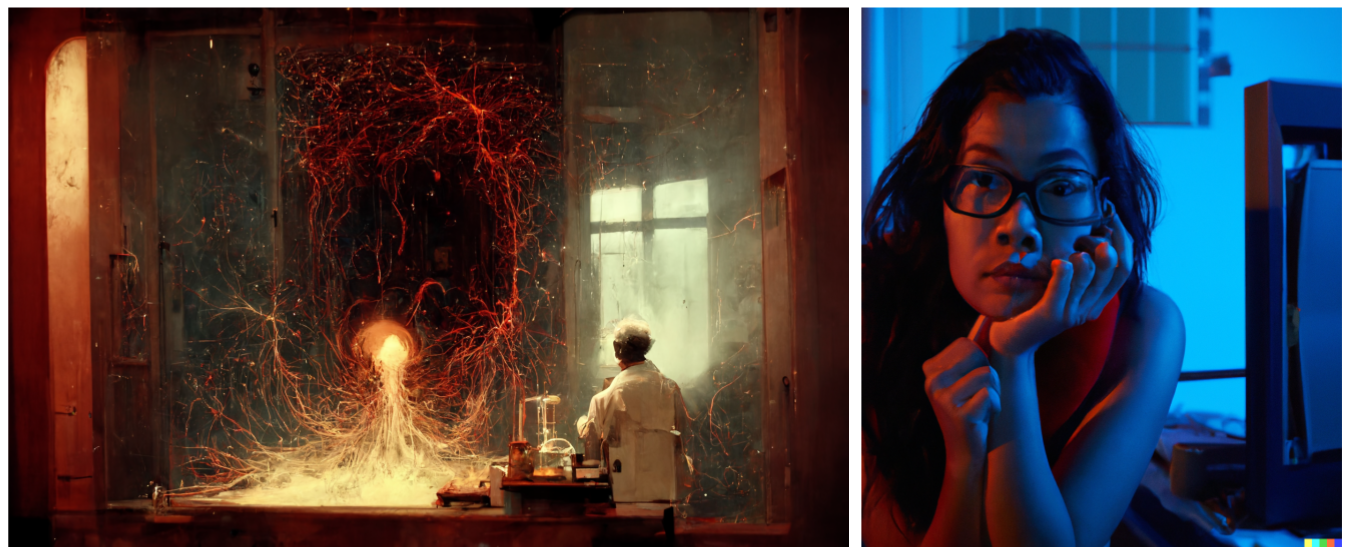
This was a cause for celebration.
But it also meant that we were never going to see the day when science and curiosity could be used for good. The singularity was off the table.
The human species had already failed at that.
The strange creatures that defeated us were surely on the way to extinction, but they had taken our world with them.
We had a new candidate for the Great Filter: studying the Great Filter. It was too late to make use of that knowledge.
We were the last intelligent life in our universe.
And we would go extinct when the last of us died.
Perhaps we had learned enough in the five years of research to leave a message.
If this was the only purpose of life, then it was a noble one.
We had created the most diverse planet in all of the cosmos, and we had learned the secrets of the great filter.
We were the most successful species we had ever created.
What a waste.


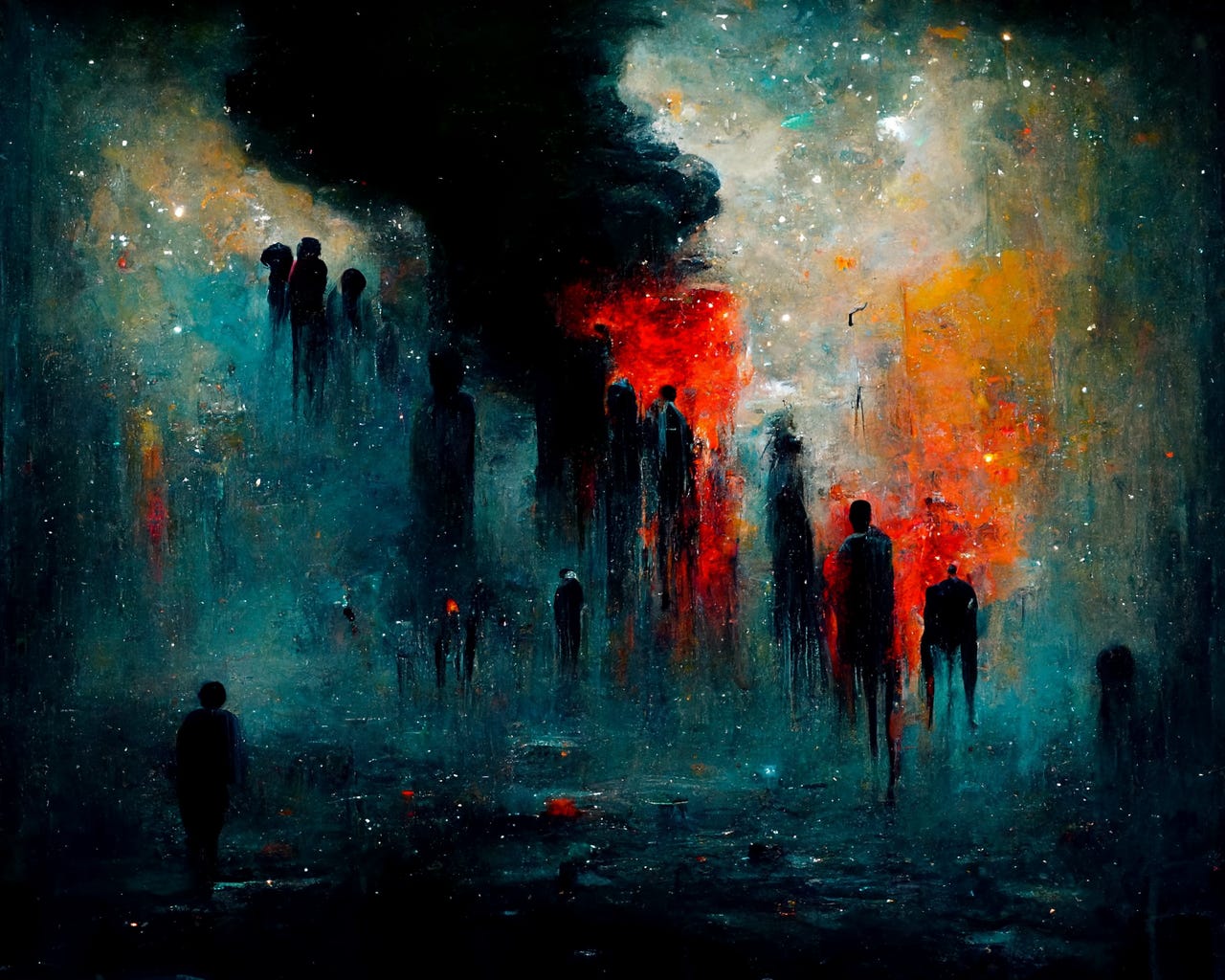
We are doomed.
The story reminds me of the 1964 Outer Limits episode, "Wolf 359". As far as AI generated stories go, this is a good one. The AI generated part of it could really benefit from the human touch. It is somewhat stilted and lacks character development.